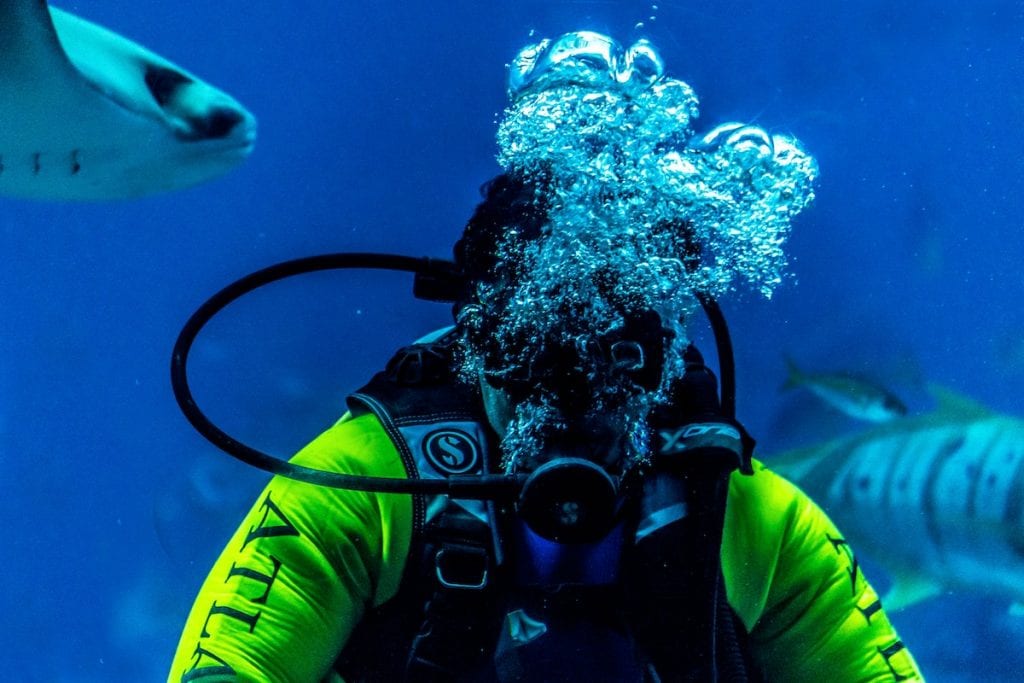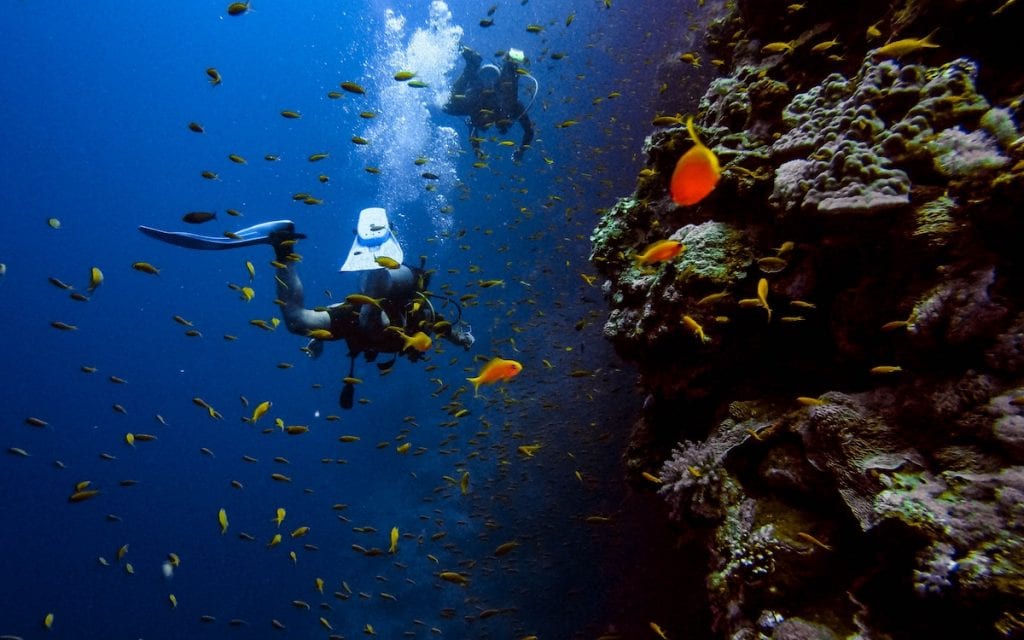
SCUBA diving is a sport that many people have heard about, whether it was in movies or on television, in the news, or in books they had read. Some take an immediate interest in it and some stay on the sidelines and don’t really revisit the topic. The training agencies are all standardized so that we all teach the same curriculum across the different agencies with very little variation. But unless you’re learning from a certified diver who’s absorbed the material well, you may have been misinformed about what exactly SCUBA Diving involves. Here’s a list of some of these misconceptions!
Even some of my favorite TV shows (i.e. Money Heist, Season 3) get this wrong and it’s frustrating because it comes off as lazy to assume this is true and not do five minutes of research. Recreational (non-commercial or no decompression divers) do not use pure oxygen while diving. What we use at the entry-level is what we refer to as “Air”. It is comprised of the same mixture of Oxygen (~21%) and Nitrogen (~79%) that is in our atmosphere that we take in with every breath here on the surface. In your Open Water Diver Course, you will learn why this is safe. In your Enriched Air Nitrox course, you will learn how to use more than 21% oxygen, but no more than 40% oxygen safely and why divers choose to do so.

Okay, I know I just threw some numbers at you, but there is little math and physics that you need to truly memorize. What you do learn is how pressure affects us and our bodies, about the gas that we breathe, and how pressure increases the deeper we go. We benefit so much from technology in the 21st century in so many facets of our lives and diving is no different. Computers keep track of how deep we are, how long we have been down, and where our limits are in depth and time. This is all calculated in real-time. You need only to understand the concepts of what the computer is doing. Blindly following any computer is unsafe. Once you know the basics of diving physics, you know how to trust your computer.
Why would you run out of air? Air management is a vital and simple skill. The basic rule is: pay attention. This is a very preventable emergency. You learn how to avoid running out of air by monitoring your gas, letting your buddy know how much air you have, and learning when to leave the bottom. Another beautiful thing about technology is that some computers also know how much air you have and can alert you when you get to a preset amount.
In the mid-1900s, Freedivers were defying what so many physicists hypothesized. That is, that the enormous pressure of the ocean would crack a man’s ribcage past a certain point (~100m/333ft). The truth is, our bodies are well prepared to survive incredibly deep dives with the proper training. Pressure affects air spaces and the air spaces we take down with us are our mask, ears, sinuses, and lungs. The ears and the mask are the most noticeably affected by the pressure and in these air spaces. Have you ever tried to dive to the bottom of the pool and experienced discomfort in your ears? Have you ever had sinus or ear discomfort on an airplane? The physics are the same. We simply need to blow out of our nose gently while pinching our nostrils and we do this before we experience discomfort.

This could turn into a physics lesson but the truth is, I’m not qualified to teach it! Water does absorb light and color, yes. But natural light penetrates the ocean and other bodies of clear water for hundreds of feet. You would bring a light if you wanted to look into crevasses in the coral or perhaps under ledges. We do this especially when we’re hunting for lobsters. Underwater photography also calls for additional light sources sometimes, but not always. In general, you needn’t worry about the darkness of the ocean.
Swimmers who have trained and competed in, say high school or college, do generally make good divers. This, however, is not a prerequisite. Children as early as 8 years old can try SCUBA in a pool and students as young as 10 years old can be Junior Open Water Diver certified to a depth of 40ft. There are also handicap-able SCUBA divers. I once spent two days doing exploration dives with a 17-year young woman who was only able to use one leg. Divers come in many forms and the sport does not disclude people who don’t regularly swim laps. While diving, you’re using your legs with the help of fins for propulsion and the way you move through the water on SCUBA is very different than swimming laps.
The truth is, we’re going into the sharks' house and we’re so lucky when we get to see sharks in the wild. We’re wearing a SCUBA unit that makes us sound like Darth Vader when we breathe. We also blow bubbles while we breathe. Sharks are not used to hearing Darth Vader and they’re not used to seeing bubbles in the water so our breathing generally scares them away. If we don’t bring dead fish with us in the water or shoot a fish while we’re there, sharks stay at a very safe distance from us and sadly don’t normally come close enough for a great photo. It’s rare moments when we get a good shot and a closer interaction but I’ve spent years diving with sharks and have never seen them be aggressive towards divers. I’ve never been bothered by barracudas either.